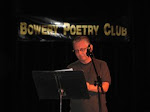Listen to the show now in the archives!
By the time Shonen Knife were passing around the 50 copies of their self-released cassette demo, Everybody Happy (1982), Japanese all-girl and female-fronted acts had already left a series of deep and lasting marks on the archipelago’s punk scene. The short list would have to include Aunt Sally’s pioneering Aunt Sally (1979) and lead singer Phew’s bold leap forward Phew (1981), as well as Plastics’ B52’s-inspired Welcome Plastics (1979), Noise’s brilliantly stripped-down Emperor (1980), Tolerance’s darkly futuristic, proto-EDM Divin and Mizutama Shobodan’s sublime Maiden’s Prayer Da Da Da! (both 1981), and probably the greatest Japanese post-punk record of them all, Saboten’s Floor (1982).
Germany fell in love with Phew—her self-titled debut was engineered by Conny Plank; Holger Czukay and Jaki Liebezeit from Can provided the bounce and beat—and she later collaborated with DAF’s Chrislo Haas, Einstürzende Neubauten’s Alexander Hacke, and Rabotti’s Thomas Stern.
America fell for Shonen Knife: the U.S. release of Burning Farm and Pretty Little Baka Guy were on regular rotation at the San Francisco branch of Tower Records the whole year and change I worked there in the late eighties. I left Tower just before the tribute Every Band Has A Shonen Knife Who Loves Them dropped; I’m guessing it was even more popular among the staff.
From our vantage point back then, Shonen Knife was Japanese punk. No doubt there were a handful of savvy music obsessives flying over the Pacific to hunt down the Vanity Records catalog with Friction and the Stalin blasting through their Walkman headphones. But for most of us, it was Shonen Knife. Because, first, that’s who got picked up here. And, yes, their poetically kooky English-language lyrics were charming. And, in their way, very late eighties.
Throughout the 1980s, Japanese punk proliferated, mutating into its inevitable offshoots (hardcore, new and no wave, minimal synth, post-punk, avant-pop), and women spearheaded several of the decade’s era-defining forces: After Dinner, C. Memi, the Comes, Go-Bangs, G-Schmitt, Kadorie, Katra Turana, Nurse, Rap. That’s just a handful of artists, but a good number compared to the previous decade in Japan, where women were mostly absent among the country’s psychedelic-era history makers.
What caused the shift? Punk’s D.I.Y. ethos certainly had an impact. The Runaways were big enough in Japan to warrant a 1977 visit; they must have inspired some women to pick up a guitar, drumsticks, or a microphone. Some say it was Shonen Knife’s example that led to a surge in female-forward acts—Naoko and Atsuko showed that women could make their own music, their own way, and become popular overseas doing it.
But, then, so did Phew.
Tune in this Wednesday, May 21, from 7-10 PM EDT, when Bodega Pop Live on WFMU's Give the Drummer Radio spins classic, deep, and rare eighties cuts by some four dozen Japanese she-punks.
Listen to the show now in the archives!






.jpg)















.jpg)
























































.jpg)


































No comments:
Post a Comment